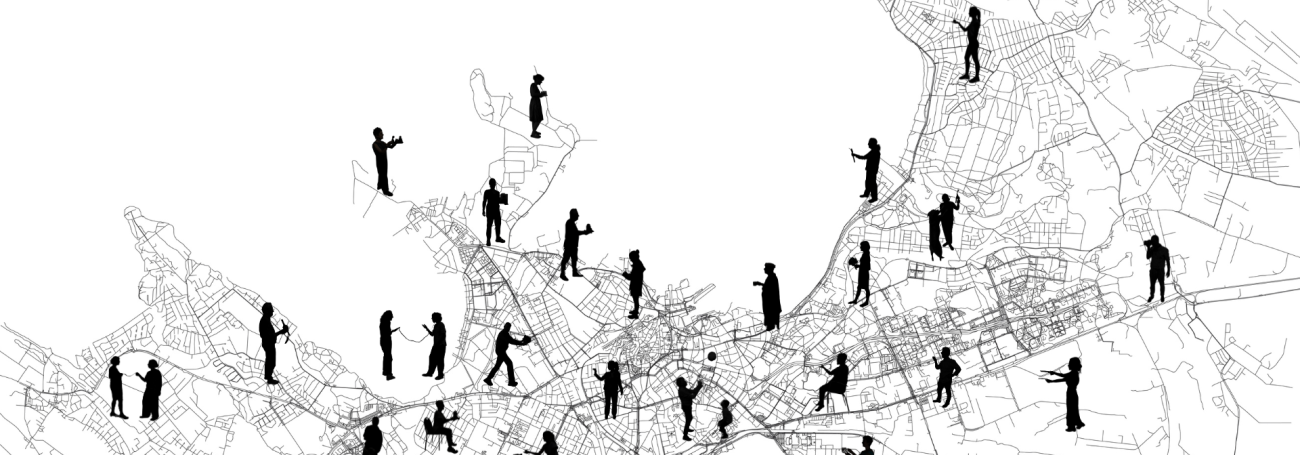
Click below to know more about registration fees (including our solidarity price model, members' discounts and waiver applications) and deadlines. To register, click on SUBSCRIBE (above).

12th International Conference of the European Forum for Restorative Justice
Just Times: Restorative Justice Responses in Dark Times
Tallinn University Conference Centre - Estonia, 29-31 May 2024
Download the booklet here (latest update: 14 May)
Just Times: Restorative Justice Responses in Dark Times
The 12th International Conference of the European Forum for Restorative Justice (EFRJ) will focus on the potential of restorative justice at dark times, times when conflict, war and violence are either present or threaten most nations, regions and communities. Conflicts, war, and violence diminish peace, justice, rights and democracy, values we often take for granted. They can nourish fears and insecurities, while proliferating human (and environmental) harms and vulnerabilities. While restorative justice is widely used to respond to interpersonal conflicts and to challenge existing punitive justice systems, this conference wishes to open the discussion on the role of restorative justice in responding to larger scale war, conflict, and violence and their implications, while at the same time transforming those structural and entrenched societal dynamics that feed them. This is in line with one of the aims of the restorative justice movement to create a cultural change not only in justice systems but also in societies as a whole.
Download the booklet here (last update: 15 May 2024)
Click below to know more about registration fees (including our solidarity price model, members' discounts and waiver applications) and deadlines. To register, click on SUBSCRIBE (above).
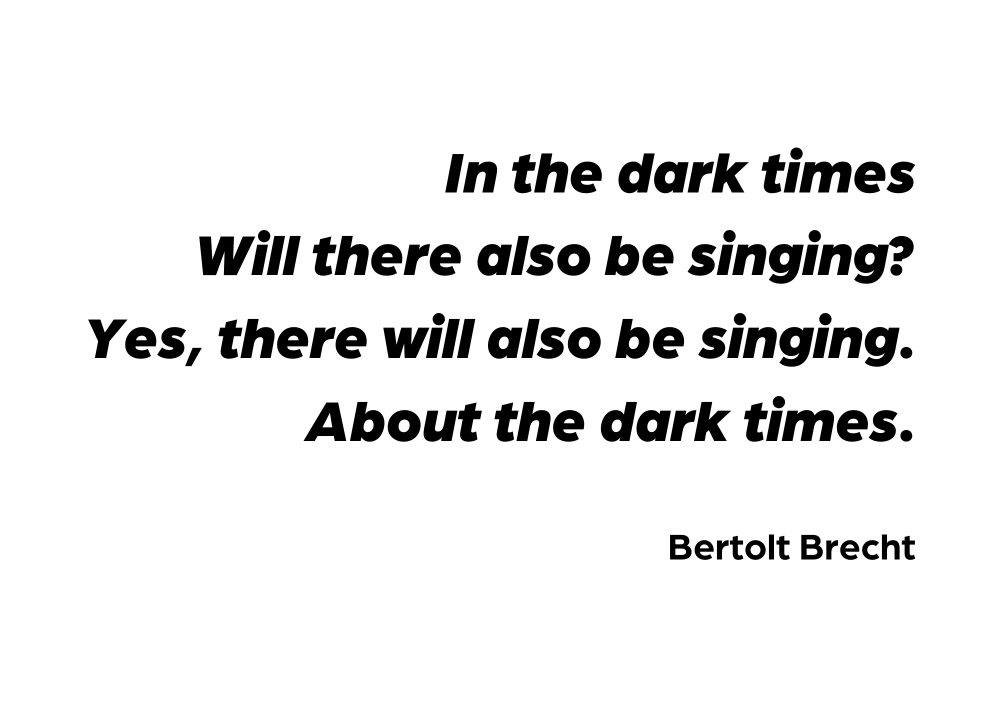
Starting from this question, this conference will give the floor to international experts in the fields of violence reduction, crisis management, war studies, diplomacy, peacebuilding and transitional justice to support the restorative justice community in finding synergies with other relevant areas of work dedicated to respond to different contexts and situations that characterise “dark times”. Among the plenary speakers, there will be academics, policymakers, service directors and young activists witnesses of violence, from different continents. Such an interdisciplinary approach, bringing together different sources of relevant knowledge in theory, practice and experience, will serve as inspiration for our restorative justice audience to further advance the field.
The audience, including restorative justice professionals from all over the world, will have the possibility to propose parallel workshop sessions to further build on the plenary topics, or to propose other topics relevant for restorative justice. This will also be the space for discussions and reflections on the challenges of the restorative justice field within its more “classical” application in the criminal justice settings.
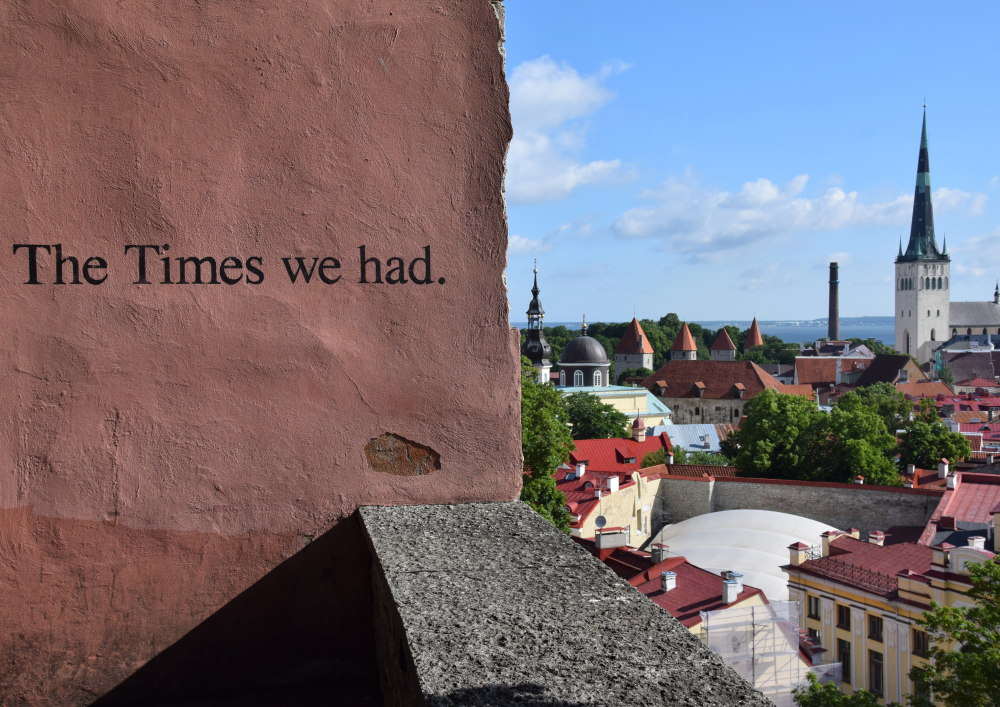
The choice of the location hosting our conference is not coincidental. Estonia is one of the three Baltic countries, together with Latvia and Lithuania, who experienced first the German, and then the Soviet occupation in the last century. Because of this, the ongoing war in Ukraine has brought up a lot of dormant traumas, feelings of injustice, and empathy for everyone affected by conflicts around the world. The experiences of the 20th century have had a complex impact on their justice systems, first more punitive and then more innovative and forward-looking. Thanks to all the reforms carried out during its 30 years of re-independence, Estonia is highly ranked in terms of quality of life, education, freedom of speech and technology developments.
Our local hosts, the Social Insurance Board in cooperation with the Estonian Ministry of Justice, are well known in our field for their innovative work in the field of restorative justice, especially in cases such as domestic violence and sexual child abuse, cases involving young people and refugees, and cases where practices had to be adapted to digital settings. They have used restorative practices in community conflicts sparked by unexpected events such as the global pandemic or public shootings. Also RuaCrew joined the local organising team: since 2009, this NGO works to prevent and respond to social problems and delinquency, giving support to young people and their families with restorative-oriented approaches.
Thanks to their local cooperation networks, the programme will also include some field trips to get to know Estonian realities relevant for restorative justice (or for your cultural interests).
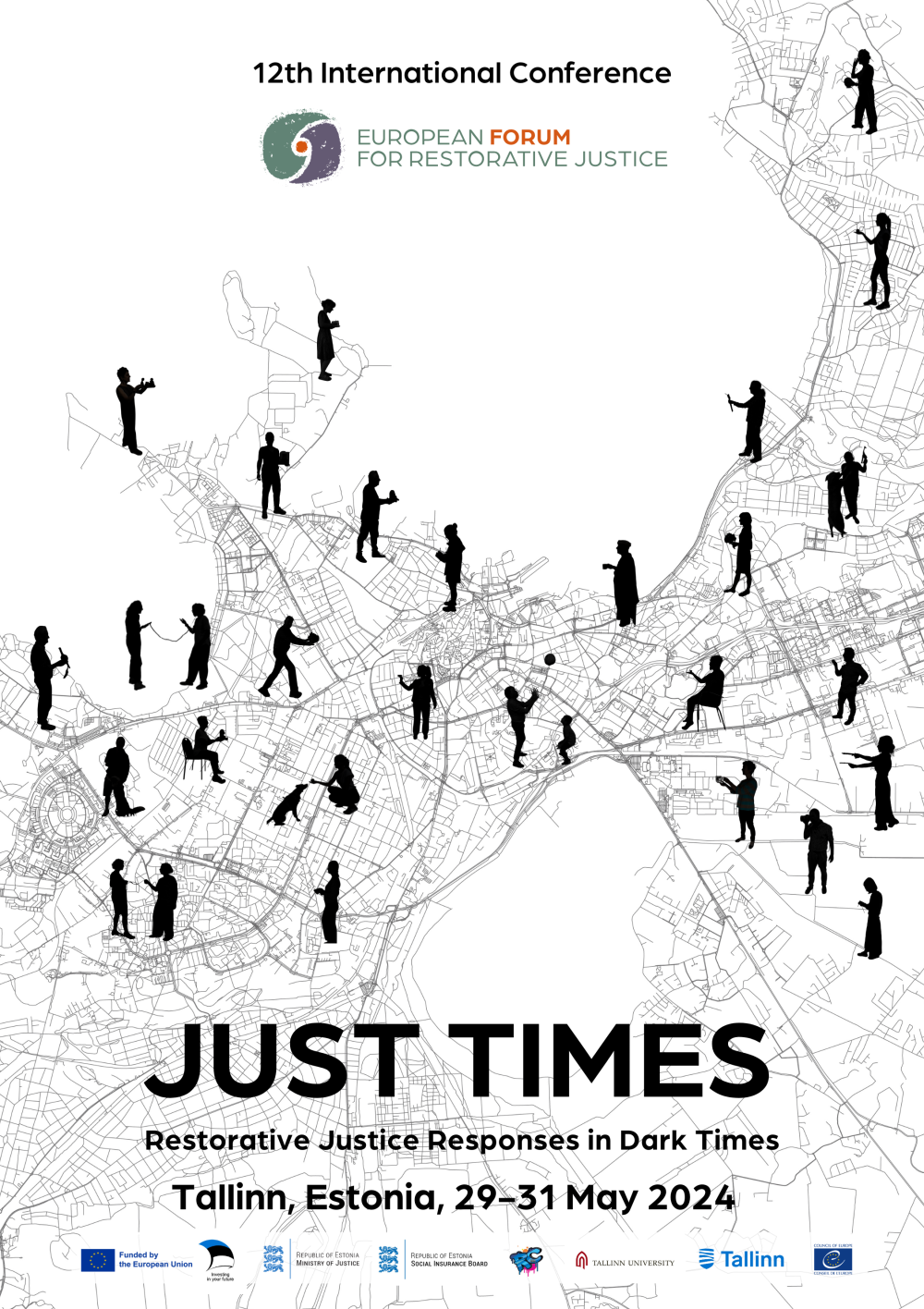
Below you can find the agenda of the full week in Tallinn. The 3-day conference includes 4 plenary sessions, 42 parallel workshop sessions, as well as social moments and 7 local field trips. Other initiatives bringing us together in Tallinn are the Annual General Meeting of the EFRJ membership, the European Restorative Justice Award Ceremony, the pre-conference training and the seminar on the use of restorative justice in university settings.
Tue 28/5 | Wed 29/5 | Thu 30/5 | Fri 31/5 |
9-16 Pre-conference training | 9-17:30 Conference
17:45-19:15 European Restorative Justice Award Ceremony + Reception | 9-17:30 Conference
20-23 Social dinner | 9-13 Conference |
| 14- 16 Seminar on RJ in university settings | |||
18-20 AGM 20-21 Reception | 14-18 Parallel field trips |
This EFRJ Conference will kick off by setting the scene with an overview of the history of justice reforms and human rights in Estonia (Mart Susi)
For the first panel, we will look at the intersection between transitional and restorative justice and focus on dialogue in times of conflict and community restorative-oriented work (Camilo Eduardo Umaña Hernández and Alona Horova).
The second plenary will give a voice to young people involved in peace-making projects through encounters with “the other”, showing the exemplary and emancipatory role of youth in social conflict situations (Adelina Tërshani, Elina Khachatryan, Tanya Kearns and Imrana Alhaji Buba).
Finally, we will open the dialogue reflecting on how restorative principles and ideals may challenge existing systems of violence and oppression (Tricia Pereira, James Bell and Mariama Diallo).
The EFRJ is a platform for bringing people together, and its conferences are the best occasion to show the variety of expertise that the restorative justice movement includes, involving practitioners, researchers, academics, legal professionals, social workers, artists, policy makers and activists.
All participants had the opportunity to present their ideas before 17 December: the call for proposals is now closed and we received 117 submissions.
If you missed the deadline or you have not been selected for the workshop but you are still interested in presenting your work, you may still get in touch with us at info@euforumrj.org
On the last afternoon of the conference, participants will have the opportunity to choose between seven field trips in Tallinn. This will be the opportunity to visit different realities concerning restorative justice (and related thematic areas of interest) in Estonia: thanks to our local organising team for putting such a precious programme together!
Registrations to the field trips have been sent out to participants with a webform at the end of April and have to be filled by 5 May - if you didn't receive it, please contact us at info@euforumrj.org after checking your spam folder.
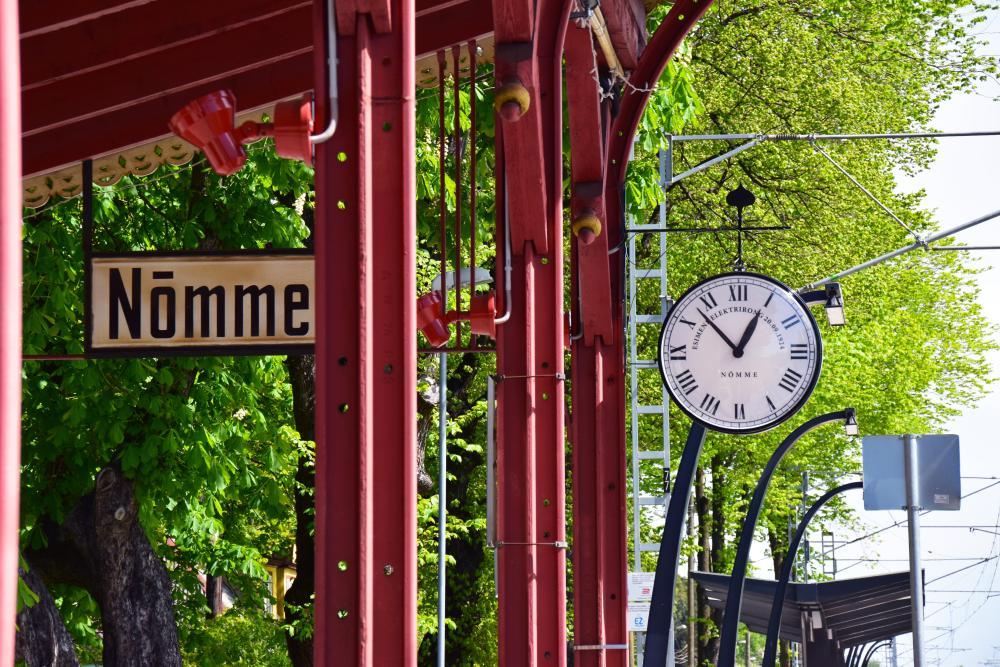
REGISTRATIONS
Registrations are opened until 30 April 2024 (early bird: 15 March). More info here.
VENUE
The conference will take place in Tallinn University Conference Center (TUCC), Uus-Sadama 5, 10120 Tallinn.
There is no direct public transport connection between TUCC and Lennart Meri Tallinn Airport. If you need to get to the TUCC directly from the airport, please use a taxi or ridesharing service. From the city centre, trams number 1 and 3 stop directly in front of Tallinn University (stop: Tallinna Ülikool). Buses 1, 34, 38 also stop near the university (stop L. Koidula). Find here the timetables and route maps to all public transport lines in Tallinn.
TOURISM
To organise your trip to Tallinn please visit www.visittallinn.ee, where you can find information about the city's public transport system, major attractions, events, activities, restaurants, and many other relevant topics in five different languages (English, Estonian, Russian, Finnish, and German).
Getting to Tallinn
Travel to the conference by train and other low-carbon modes of transportation using the eco-friendly travel tips of Belinda Hopkins.
Will you be presenting at the 12th EFRJ Conference in Tallinn? Check out the page below to read the Frequently Asked Questions regarding the presentations!
Photo credits: VisitTallinn Media Bank
Banner: "Tallinn Old Town towers and town wall" by Kaupo Kalda
Photo: "Kohtuotsa viewing platform" by Kadi-Liis Koppel
Photo: "Nõmme railway station" by Maret Põldveer-Turay